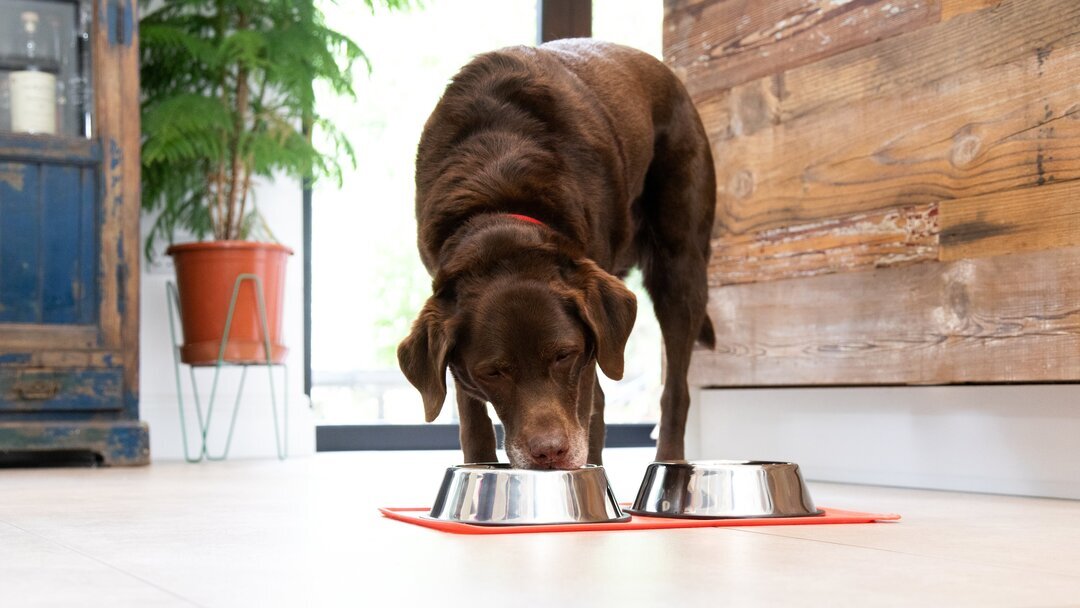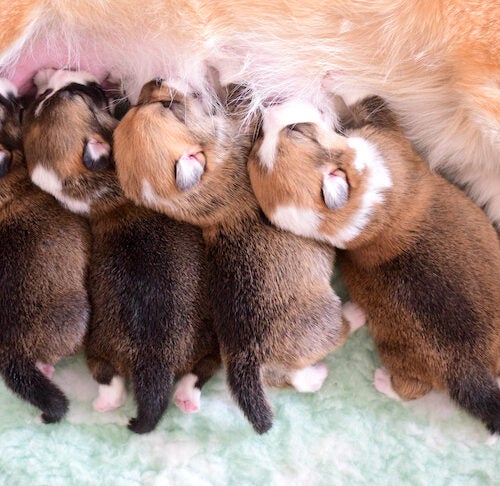
Introduction
If you are a dog owner, you may find yourself in the exciting position of caring for a pregnant dog. Just like humans, pregnant dogs require special attention and care to ensure a healthy pregnancy and delivery. By understanding the importance of caring for a pregnant dog and following some essential guidelines, you can help provide the best possible care for your furry friend.
Why is it important to care for a pregnant dog?
Caring for a pregnant dog is crucial for several reasons:
- Health and well-being: Proper care during pregnancy helps ensure the health and well-being of both the mother and her puppies. It reduces the risk of complications, such as infections or malnutrition, which can have serious consequences.
- Puppy development: Adequate nutrition and veterinary care during pregnancy contribute to the healthy development of the puppies. This includes regular check-ups, vaccinations, and a balanced diet.
- Mother’s comfort: Pregnancy can be physically demanding on a dog’s body. Providing a comfortable and stress-free environment helps promote her overall well-being and reduces the risk of complications.
- Preparation for delivery: Caring for a pregnant dog involves preparing for the delivery process. This includes creating a safe and clean whelping area, gathering necessary supplies, and being aware of signs of labor.
- Bonding: Caring for a pregnant dog allows you to strengthen your bond with her as you provide the love, attention, and support she needs during this special time.
Remember, every dog is unique, so it’s essential to consult with your veterinarian throughout the pregnancy to ensure you are providing the best care possible.
By prioritizing the health and well-being of your pregnant dog, you are setting the stage for a successful pregnancy and the arrival of healthy, happy puppies.

Recognizing Pregnancy in Dogs
Welcoming a litter of puppies into the world can be an exciting and rewarding experience. If you suspect that your furry friend is pregnant, it’s important to provide her with the care and attention she needs. Here are some key points to help you recognize and care for a pregnant dog.
Signs and symptoms of pregnancy in dogs
- Physical changes: As the pregnancy progresses, you may notice physical changes in your dog’s body. These can include a swollen abdomen, enlarged nipples, and weight gain.
- Behavioral changes: Pregnant dogs may exhibit changes in behavior, such as increased affection, nesting behavior, and decreased appetite.
- Changes in appetite: Some pregnant dogs may experience a decrease in appetite during the first few weeks, while others may have an increased appetite later on.
- Mammary gland development: Around three to four weeks into the pregnancy, you may notice the mammary glands becoming larger and more prominent.
When to consult a veterinarian
While it’s natural for pregnant dogs to experience certain changes, it’s important to consult a veterinarian for proper prenatal care. Here are some situations when you should seek professional advice:
- If you suspect pregnancy: If you suspect that your dog is pregnant based on the signs and symptoms mentioned above, it’s best to have a veterinarian confirm the pregnancy through a physical examination or ultrasound.
- If there are complications: If your dog shows signs of distress, has difficulty giving birth, or experiences any complications during pregnancy, it’s crucial to seek immediate veterinary assistance.
- If you have questions or concerns: If you have any questions or concerns about caring for your pregnant dog, don’t hesitate to reach out to your veterinarian. They can provide guidance on diet, exercise, and general care during this crucial time.
Remember, providing proper care and attention to your pregnant dog is essential for her health and the health of her puppies. Regular veterinary check-ups and a supportive environment will help ensure a successful and healthy pregnancy.

Nutrition for a Pregnant Dog
Welcoming a litter of puppies into the world is an exciting time for any dog owner. However, it’s essential to provide proper care and nutrition to ensure the health of both the mother and her pups. Here are some key points to consider when caring for a pregnant dog.
Importance of a balanced diet
During pregnancy, a dog’s nutritional needs increase significantly. A balanced diet is crucial to support the growth and development of the puppies and maintain the mother’s health. It’s important to provide a diet that is rich in essential nutrients such as protein, carbohydrates, fats, vitamins, and minerals. Consulting with a veterinarian can help determine the specific dietary requirements for your pregnant dog.
Specific dietary requirements for pregnant dogs
Pregnant dogs require a higher intake of calories to meet their energy needs. It’s recommended to feed them high-quality dog food that is specially formulated for pregnant or nursing dogs. These foods are designed to provide the necessary nutrients in the right proportions. Additionally, it’s important to monitor your dog’s weight throughout her pregnancy and adjust her diet accordingly.
Recommended dog food brands for pregnant dogs
There are several reputable dog food brands that offer specialized formulas for pregnant dogs. Some popular options include Royal Canin, Hill’s Science Diet, and Purina Pro Plan. These brands have specific formulas that cater to the unique nutritional needs of pregnant dogs. When selecting a brand, look for those that have high-quality ingredients and meet the nutritional standards set by regulatory bodies.
Remember, it’s always best to consult with a veterinarian before making any changes to your dog’s diet or starting any supplements. They can provide personalized advice based on your dog’s specific needs and ensure that she receives optimal nutrition throughout her pregnancy. By providing proper nutrition, you can help ensure a healthy and successful pregnancy for your beloved furry friend.
:strip_icc()/JaneBurton-DorlingKindersley-GettyImages-81992147-56a26b903df78cf772756a79.jpg)
Exercise and Activity
When it comes to caring for a pregnant dog, ensuring she gets the right amount of exercise and activity is crucial for her health and the health of her puppies. However, it’s important to approach exercise with caution and make sure it’s appropriate for her stage of pregnancy.
Appropriate exercise for pregnant dogs
During the early stages of pregnancy, it’s generally safe to continue with your dog’s regular exercise routine. However, as the pregnancy progresses, you’ll need to make some adjustments. Short walks on flat surfaces are usually recommended, as they provide gentle exercise without putting too much strain on her body.
Avoiding strenuous activities
Strenuous activities such as running, jumping, or rough play should be avoided during pregnancy. These activities can put excessive stress on your dog’s joints and abdomen, potentially causing harm to both her and the developing puppies. It’s best to consult with your veterinarian to determine the appropriate level of activity for your pregnant dog.
Benefits of regular exercise for pregnant dogs
Regular exercise during pregnancy offers several benefits for your dog. It helps maintain muscle tone and strength, which can assist in an easier delivery process. Exercise also promotes good circulation and helps prevent excessive weight gain, which can lead to complications during pregnancy.
Additionally, exercise provides mental stimulation and helps prevent boredom in pregnant dogs. This can contribute to their overall well-being and reduce the risk of behavioral issues.
Remember, every dog is unique, and their exercise needs may vary. It’s important to monitor your pregnant dog closely during exercise and consult with your veterinarian for personalized advice based on her specific needs.
By providing appropriate exercise and activity, you can help ensure a healthy and comfortable pregnancy for your beloved furry friend.

Prenatal Veterinary Care
Welcoming a new litter of puppies into the world is an exciting time for any dog owner. To ensure the health and well-being of both the mother and her puppies, it is important to provide proper prenatal care for your pregnant dog.
Importance of regular check-ups during pregnancy
Regular veterinary check-ups are crucial during pregnancy to monitor the health of the mother and the developing puppies. These check-ups allow the veterinarian to identify any potential issues early on and provide appropriate treatment if necessary. The vet will conduct physical examinations, check for any signs of complications, and offer guidance on nutrition and exercise.
Vaccinations and deworming for pregnant dogs
Vaccinations are an essential part of prenatal care for dogs. Ensuring that your pregnant dog is up to date on her vaccinations helps protect her from diseases that could harm both her and her puppies. It is important to consult with your veterinarian about which vaccines are safe during pregnancy.
Deworming is also crucial during pregnancy to prevent the transmission of parasites from the mother to her puppies. Your veterinarian can recommend a safe and effective deworming protocol for your pregnant dog.
Ultrasound and other diagnostic tests
Ultrasound is a valuable tool in monitoring the progress of a pregnancy in dogs. It allows the veterinarian to confirm pregnancy, estimate the number of puppies, and detect any abnormalities or complications.
Other diagnostic tests, such as blood tests, may also be recommended by your veterinarian to assess the overall health of the mother and ensure a successful pregnancy.
By providing proper prenatal veterinary care for your pregnant dog, you can help ensure a healthy pregnancy and delivery. Regular check-ups, vaccinations, deworming, and diagnostic tests are all essential components of caring for a pregnant dog. Remember to consult with your veterinarian for personalized advice and guidance throughout the pregnancy journey.

Creating a Safe and Comfortable Environment
Welcoming a new litter of puppies is an exciting time for any dog owner. To ensure the health and well-being of your pregnant dog, it is important to create a safe and comfortable environment for her. Here are some key points to consider:
Preparing a whelping area
It is essential to set up a designated area where your pregnant dog can give birth and care for her puppies. This area should be quiet, secluded, and easily accessible for you to monitor the process. Provide a whelping box or crate with high sides to prevent the puppies from wandering off.
Nesting materials and bedding options
Choose soft and comfortable bedding materials for the whelping area. Options include old blankets, towels, or specially designed whelping pads. Avoid using materials that are too fluffy or have loose threads that could pose a choking hazard to the puppies.
Temperature control and other environmental considerations
Maintaining a suitable temperature is crucial for the well-being of the pregnant dog and her puppies. Keep the whelping area warm, between 75-85 degrees Fahrenheit (24-29 degrees Celsius), using heating pads or heat lamps if necessary. Ensure proper ventilation in the room to prevent overheating.
Other environmental considerations include keeping the area clean and free from potential hazards such as sharp objects or toxic substances. Provide fresh water and easily accessible food for the pregnant dog to ensure she stays nourished throughout her pregnancy.
By creating a safe and comfortable environment, you are setting the stage for a successful pregnancy and healthy puppies. Regularly monitor your pregnant dog’s behavior and consult with your veterinarian for any specific care instructions based on her breed or individual needs.
Remember, providing a stress-free environment will contribute to the overall well-being of your pregnant dog, allowing her to focus on the important task of nurturing her puppies.
:strip_icc()/Busybee-CR-5c423b7b4cedfd0001c84704.jpg)
Managing Pregnancy Complications
Common complications during dog pregnancy
Pregnancy can be an exciting time for both you and your furry friend, but it’s important to be aware of potential complications that can arise. Here are some common issues that pregnant dogs may experience:
- Eclampsia: Also known as milk fever, this condition occurs when a dog’s calcium levels drop too low. It can cause seizures and muscle tremors and requires immediate veterinary attention.
- Mastitis: This is an infection of the mammary glands, which can cause swelling, pain, and discharge. It’s important to monitor your dog’s mammary glands for any signs of redness or heat.
- Prolapsed uterus: In rare cases, a dog’s uterus may protrude from the vulva during labor. This is a serious emergency and requires immediate veterinary assistance.
Signs of trouble and when to seek immediate veterinary attention
While it’s normal for pregnant dogs to experience some discomfort, there are certain signs that indicate a need for immediate veterinary attention:
- Severe or prolonged labor: If your dog has been in labor for more than 24 hours without delivering any puppies, it could be a sign of complications.
- Bleeding: Any excessive bleeding during pregnancy or labor should be taken seriously and requires immediate veterinary attention.
- Lack of appetite or excessive vomiting: If your dog refuses to eat or is vomiting excessively, it could indicate a problem with the pregnancy.
- Lethargy or weakness: If your dog seems unusually tired or weak, it could be a sign of complications.
Remember, it’s always better to be safe than sorry when it comes to your dog’s health. If you notice any concerning symptoms or have any doubts, don’t hesitate to contact your veterinarian for guidance and assistance.

Preparing for Delivery
Welcoming a new litter of puppies into the world is an exciting time for any dog owner. To ensure a smooth and safe delivery for your pregnant dog, it’s important to be prepared. Here are some key points to consider:
Recognizing signs of imminent labor
- Nesting behavior: Your pregnant dog may start seeking out a quiet and comfortable place to give birth. This could involve digging or rearranging bedding.
- Temperature drop: A drop in body temperature below 100°F (37.8°C) is a sign that labor is imminent. Monitor your dog’s temperature twice a day during the last week of pregnancy.
- Restlessness and pacing: Your dog may become restless and pace around as she prepares for labor.
- Loss of appetite: Many dogs will lose interest in food 24-48 hours before giving birth.
What to expect during the birthing process
- Stage 1: Early labor: This stage can last up to 24 hours and is characterized by restlessness, nesting behavior, and mild contractions.
- Stage 2: Active labor: This is when the actual delivery of the puppies occurs. You will notice stronger contractions, and each puppy should be delivered within 30-60 minutes of active labor.
- Stage 3: Delivery of the placenta: After each puppy is born, the mother will pass the placenta. This usually happens within 15-30 minutes after delivery.
- Caring for the newborn puppies: Once all the puppies are delivered, make sure they are breathing and remove any membranes from their faces. Allow the mother to clean them and ensure they are nursing properly.
Remember, it’s always a good idea to consult with your veterinarian throughout your dog’s pregnancy and during the birthing process. They can provide guidance and support to ensure the health and well-being of your pregnant dog and her puppies.







